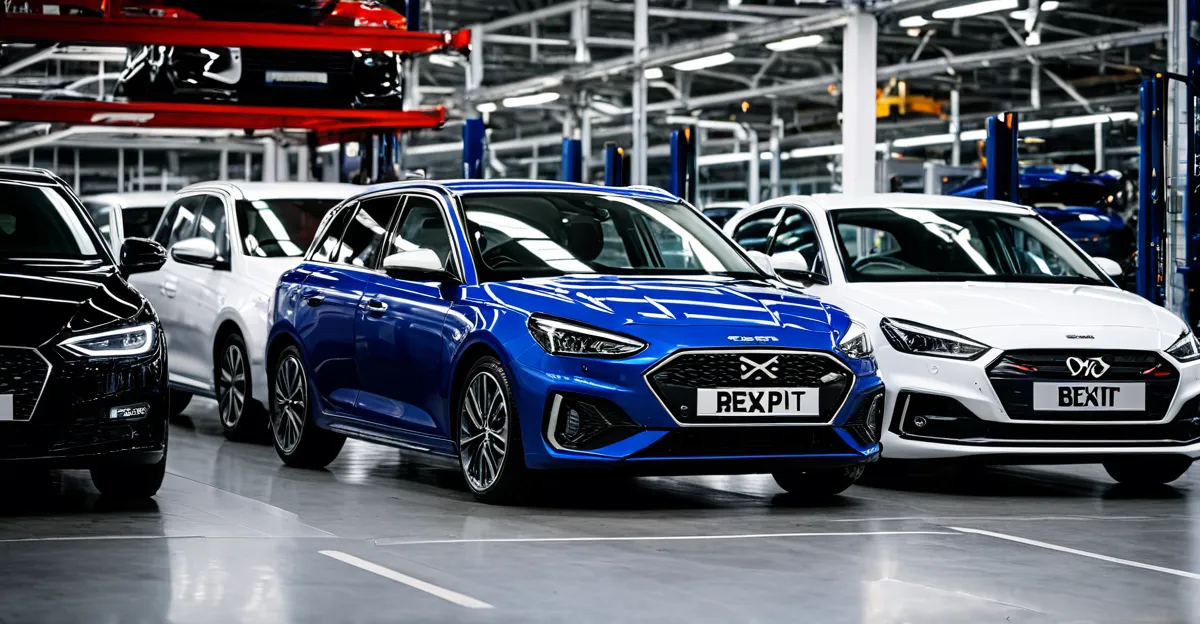Immediate Supply Chain Disruptions Since Brexit
The Brexit impact on the UK automotive industry has manifested immediately through significant supply chain disruptions. One of the most pressing issues has been the introduction of increased customs checks and new border procedures. This shift has caused delays in the movement of essential parts, disrupting the precise coordination required in just-in-time delivery systems. Automotive manufacturers have experienced unpredictability that challenges production schedules, leading to halted or slowed assembly lines due to missing components.
For example, several automakers have reported operational slowdowns as shipments of crucial parts are held up by customs inspections or paperwork errors. These interruptions exacerbate the vulnerability of supply chains originally designed for frictionless cross-border flows within the EU single market. The consequence is reduced manufacturing efficiency and increased costs linked to storage or expedited shipping alternatives.
In the same genre : What role does autonomous driving play in the UK automotive future?
Overall, these early disruptions highlight the delicate balance the UK automotive industry faces, as even minor delays ripple through complex production networks. Understanding the precise mechanisms behind these breakdowns is crucial for companies aiming to navigate the evolving post-Brexit landscape effectively.
Changes to Import/Export Regulations and Tariffs
Since Brexit, the UK automotive industry faces a profound transformation in its import/export rules. The shift away from the EU single market means new trade agreements govern automotive trade. Unlike before, when parts and vehicles moved tariff-free, companies must now navigate complex regulations and, in many cases, pay tariffs on components and finished vehicles. This has direct consequences for cost competitiveness.
Have you seen this : How are UK automotive firms leveraging data analytics for market growth?
Tariffs vary depending on the origin of the parts and vehicles, requiring manufacturers to comply with strict rules of origin. These rules determine when goods qualify for tariff-free trade; failure to meet them results in added expenses. For example, a UK automaker sourcing parts from outside the EU and UK may face significant tariffs, increasing production costs.
Adapting to these rules demands meticulous documentation and restructured supply chains. While some manufacturers adjust by increasing local sourcing, others absorb or pass costs to consumers. Overall, the Brexit impact on import/export regulations and tariffs presents a complex challenge that directly affects pricing, production decisions, and the international competitiveness of UK automotive trade.
Customs and Administrative Challenges
Navigating customs procedures has emerged as a major hurdle for the UK automotive industry post-Brexit. The introduction of stringent post-Brexit regulations means manufacturers now face extensive documentation requirements and complex customs declarations. These demands increase administrative costs and consume valuable resources, straining automotive logistics at every stage.
For instance, customs declarations often require precise data on product origin, classification, and compliance, which can lead to frequent delays and errors without expert handling. This complexity compels companies to invest in specialized staff or external consultants to manage the regulatory landscape effectively.
Logistical bottlenecks have become common at key UK ports and entry points, exacerbating supply chain disruptions. Trucks can wait hours or days for clearance, interrupting the just-in-time delivery crucial for automotive manufacturing. Such delays not only increase storage expenses but ripple through production schedules, causing costly stoppages.
Ultimately, administrative challenges serve as a critical link between Brexit impact and tangible supply chain issues, necessitating agile adaptation in customs processes for sustained automotive trade efficiency.






